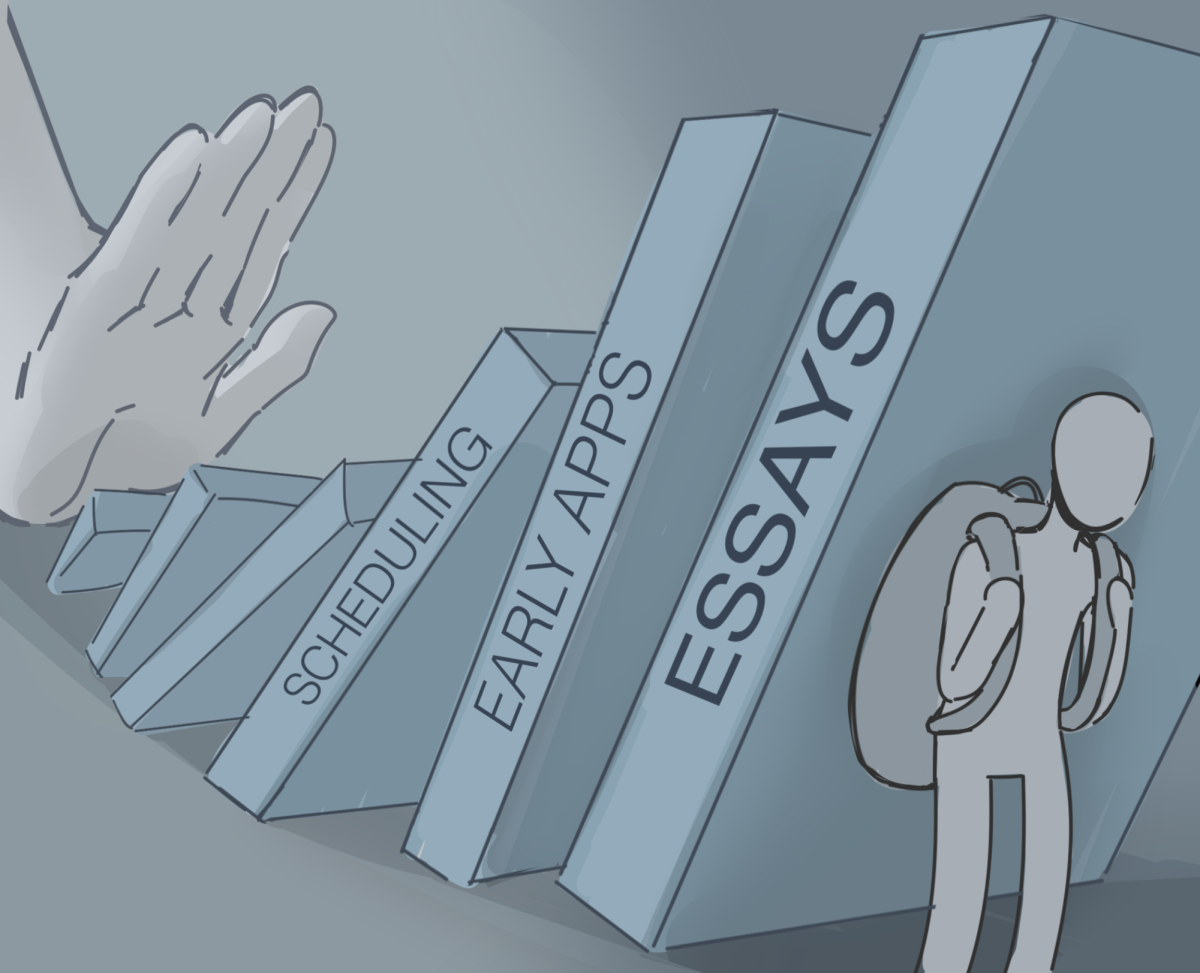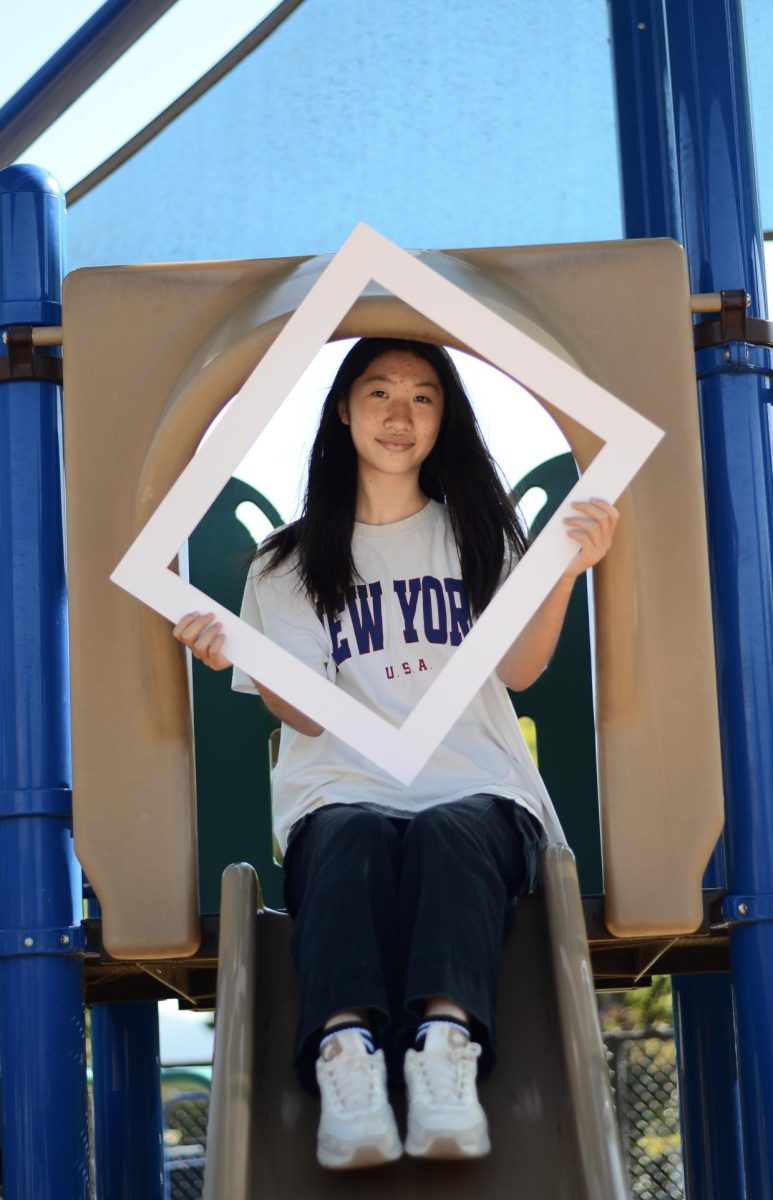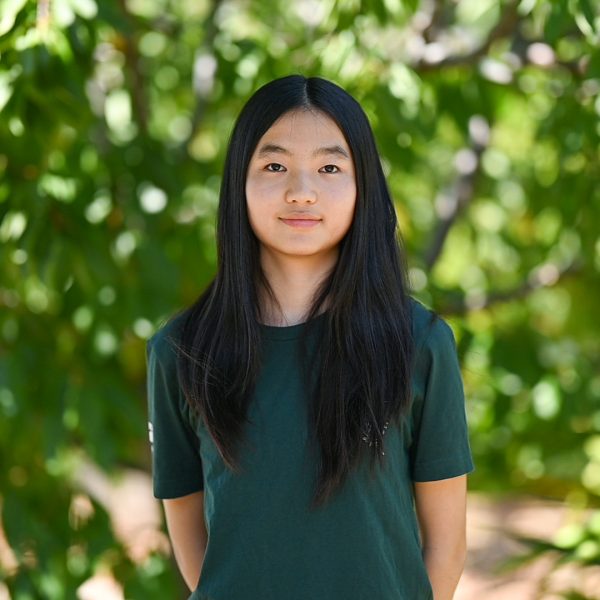Nearby Bay Area school districts including San Jose Unified and San Ramon Valley Unified began enforcing stricter cellphone bans this fall. These sweeping bans reflect a growing trend of limiting technology usage across California high schools. In San Jose Unified, students must keep their phones out of reach for the entire school day. San Ramon Valley Unified restricted phone use to only during passing periods and breaks.
Reducing phone use during lessons could help students focus more deeply and engage more thoroughly with the material. Especially at Harker, where demanding coursework and extracurricular commitments often force students to multitask between assignments, limits on phone usage bring important benefits to high schoolers.
During the school day, many students use their phones to access social media platforms like Instagram or TikTok, a habit that has a strong correlation with higher levels of stress and anxiety and discourages face-to-face interaction. Partially restricting phone use would cut down on this distraction, helping students manage stress more productively and foster healthier social interactions on campus.
The benefits of limiting phone use are well-documented. A study conducted by the London School of Economics in 2016 on English secondary schools found that low-achieving students were shown to improve their test scores by 6.41% after bans were put in place. A year later, a University of Chicago study showed that even the mere presence of a cellphone nearby reduced students’ cognitive abilities. More recently, schools in the Richardson Independent School District in Texas that adopted phone bans reported a decline in student suspensions anywhere from 15% to more than 50% within a year, and teachers noted gaining over ten minutes of instructional time each class.
These outcomes make it clear why many districts have chosen to restrict phones entirely, but what works at other schools near us may not necessarily work at Harker. Phones are an integral part of daily life, serving as tools for staying connected with both our peers, parents, and the broader school community.
Student organizations like Harker Journalism, DECA and Robotics depend on phone-based messaging applications throughout the school day to coordinate the large-scale projects they must execute. HSLT and the student council use Instagram to post informative and entertaining content about spirit events, and many clubs use social media to remind students of club meetings. Our weekly school meetings often include QR codes that students need to scan using their phones.
When the districts near us move toward phone restrictions, the expectations and norms surrounding student phone use in our area begin to change. As more local schools adopt strict limits, our community will inevitably face the question of whether to follow their lead or take a different approach.
With so many aspects of student life tied to mobile technology, an all-day ban like those implemented in some local schools would not properly serve our student body. Rather than a full ban, Harker should opt for restriction of phone access during class only. Many teachers already have their own policies regarding technology usage like designated phone bins at the start of class, and a unified expectation across classrooms would help create space for deeper engagement.
The responsibility falls to students to make conscious choices with our devices. We should understand the harms of excessive phone usage and be willing to implement healthier practices. This starts with deliberate habits: keep phones out of sight during conversations to encourage genuine interaction; use class breaks as an opportunity to connect with peers; silence notifications to maintain concentration and install app limiters to reduce endless doom scrolling. By adopting these changes, we can set the standard for a healthier phone culture without the need for an all-day ban.


















![“[Building nerf blasters] became this outlet of creativity for me that hasn't been matched by anything else. The process [of] making a build complete to your desire is such a painstakingly difficult process, but I've had to learn from [the skills needed from] soldering to proper painting. There's so many different options for everything, if you think about it, it exists. The best part is [that] if it doesn't exist, you can build it yourself," Ishaan Parate said.](https://harkeraquila.com/wp-content/uploads/2022/08/DSC_8149-900x604.jpg)




![“When I came into high school, I was ready to be a follower. But DECA was a game changer for me. It helped me overcome my fear of public speaking, and it's played such a major role in who I've become today. To be able to successfully lead a chapter of 150 students, an officer team and be one of the upperclassmen I once really admired is something I'm [really] proud of,” Anvitha Tummala ('21) said.](https://harkeraquila.com/wp-content/uploads/2021/07/Screen-Shot-2021-07-25-at-9.50.05-AM-900x594.png)







![“I think getting up in the morning and having a sense of purpose [is exciting]. I think without a certain amount of drive, life is kind of obsolete and mundane, and I think having that every single day is what makes each day unique and kind of makes life exciting,” Neymika Jain (12) said.](https://harkeraquila.com/wp-content/uploads/2017/06/Screen-Shot-2017-06-03-at-4.54.16-PM.png)








![“My slogan is ‘slow feet, don’t eat, and I’m hungry.’ You need to run fast to get where you are–you aren't going to get those championships if you aren't fast,” Angel Cervantes (12) said. “I want to do well in school on my tests and in track and win championships for my team. I live by that, [and] I can do that anywhere: in the classroom or on the field.”](https://harkeraquila.com/wp-content/uploads/2018/06/DSC5146-900x601.jpg)
![“[Volleyball has] taught me how to fall correctly, and another thing it taught is that you don’t have to be the best at something to be good at it. If you just hit the ball in a smart way, then it still scores points and you’re good at it. You could be a background player and still make a much bigger impact on the team than you would think,” Anya Gert (’20) said.](https://harkeraquila.com/wp-content/uploads/2020/06/AnnaGert_JinTuan_HoHPhotoEdited-600x900.jpeg)

![“I'm not nearly there yet, but [my confidence has] definitely been getting better since I was pretty shy and timid coming into Harker my freshman year. I know that there's a lot of people that are really confident in what they do, and I really admire them. Everyone's so driven and that has really pushed me to kind of try to find my own place in high school and be more confident,” Alyssa Huang (’20) said.](https://harkeraquila.com/wp-content/uploads/2020/06/AlyssaHuang_EmilyChen_HoHPhoto-900x749.jpeg)
















